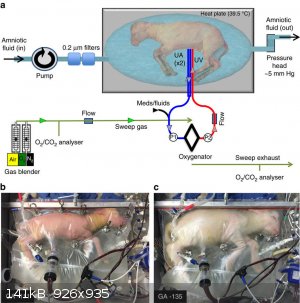
scienceboi - 30-5-2021 at 16:12
This is more a biology question than chemistry.
From my basic understanding, B-type white blood cells make and remember the antibodies for an infection(definitely viral, idk about bacteria). So if
you extracted some from your blood and trained them against the real viruses in a petri dish, could you then reintroduce them to the body and be
immune? A sort of vaccine in vitro.
I'm currently sick and I really never want to be again lol
Metacelsus - 31-5-2021 at 02:36
CAR-T therapy does this, but with delivery of a transgenic T-cell receptor.
Tsjerk - 31-5-2021 at 14:04
The process of gaining immunity against something is quite complicated, and relies on many different cell types. You practically need a complete
system including blood cell generation, maturation and specialization to get it to work. I don't think any lab would be able to do it any time soon.
The only way to do it is by genetic modification as Metacelsus mentioned, but that only works when you already have DNA from a line developed in a
living animal.
clearly_not_atara - 31-5-2021 at 14:39
The process you want to perform outside your body would not move any faster than the exact same process already occurring inside of your body --
except, of course, that now you have wounds. We have vaccines that provoke a specific immune response rather than a general one, but again, this works
best inside the body.
Leukocytes won't live long away from the host. They're versatile, but they're meant to absorb nutrients from human plasma. There is no advantage to be
gained by removing them, unless you plan to introduce modifications that couldn't be introduced normally -- genetic modification.
scienceboi - 2-6-2021 at 13:56
So from your input, its more valuable to genetically modify the white blood cells if you are removing them as there seems a lack of 'infrastructure'
to maintain a separate immune system to train.
I still feel like it would be worth it to make some type of artificial immune system like that though. It would be in similar to the biobag/artificial
womb technologies being worked on. Immune systems, from my reading, seem very similar to our current approach at machine learning. Generation after
generation being tested until an optimal solution is found. We may not know the exact way to defeat a disease but we can repeatedly test each
generation.
I think one application with is alternative approach would be zoonotic viruses and their non-human variants. They could be trained against prior to
any actual infections or epidemics. The system could be used as a proactive measure vs the reactive vaccine approach.(Reactive to the spread, vaccines
only really work as a proactive measure for each noninfected individual.)
Once its set up it would be a 'hands off' approach. No need to genetically modify or deal with the technicalities of the optimal antibodies. Just
automate nature.
[I've attached a picture of the biobag, it should be noted its purpose is for cloning, not immune systems]

Tsjerk - 3-6-2021 at 12:38
There are some weak spots in your idea. I wonder how you imagine the immunity getting from "source" to human? Do you isolate antibodies? For that
there are better techniques. Or do you want to do complete transfusions? If so, how do you prevent the patient's immune system from building immunity
against the foreign immune system?
Maybe you could get people their own clone, but how do you keep the two immune systems in sync? And how do you prevent the pathogens from killing your
clone? You would need to use some kind of weakened pathogen or extract of a pathogen.
So the only way I see this working is with a clone which you give vaccines after solving some crucial problems. At the same time I don't think you
would achieve what you are after; preventive immunization, because I don't believe you can train one immune system against all possible pathogens, nor
can you can efficiently combine multiple immune systems.
SWIM - 1-7-2021 at 14:38
Even doing this with a clone might give poor results.
I had an autologous stem cell transplant last month, and it failed to transfer most of my acquired immunities.
I was told this is because there are different adapted cells for each immunity and you lose many of them unless you are infused with a complete set of
cells.
I was infused with about 100 to 200 ml of material extracted from my blood after receiving treatments to make my immune cells proliferate and leak
into my blood in higher than normal amounts.
I am explaining this badly. Between the cell harvesting and the autologous transplant I was given some sort of heavy duty chemotheraputic agent which
really does a number on myelomas, but also destroys your bone marrow.
This is what actually destroyed my immunities, but the point is that the transplanted cells did not return my acquired immunities, or at least not
most of them.
I do have a functioning immune system or sorts, and it is capable of developing immunities when exposed to diseases or vaccines, but this will take
time.
For now I have to avoid crowds, construction sites, gardening, Roquefort cheese, rare meat, sunlight and various other things.
What really sucks about this treatment is the week or two between having your bone marrow wiped out and seeing the first signs that the transplant
worked.
They collect enough material for two transplants.
I didn't ask what happens if neither one works.
I didn't want to make them say it.
